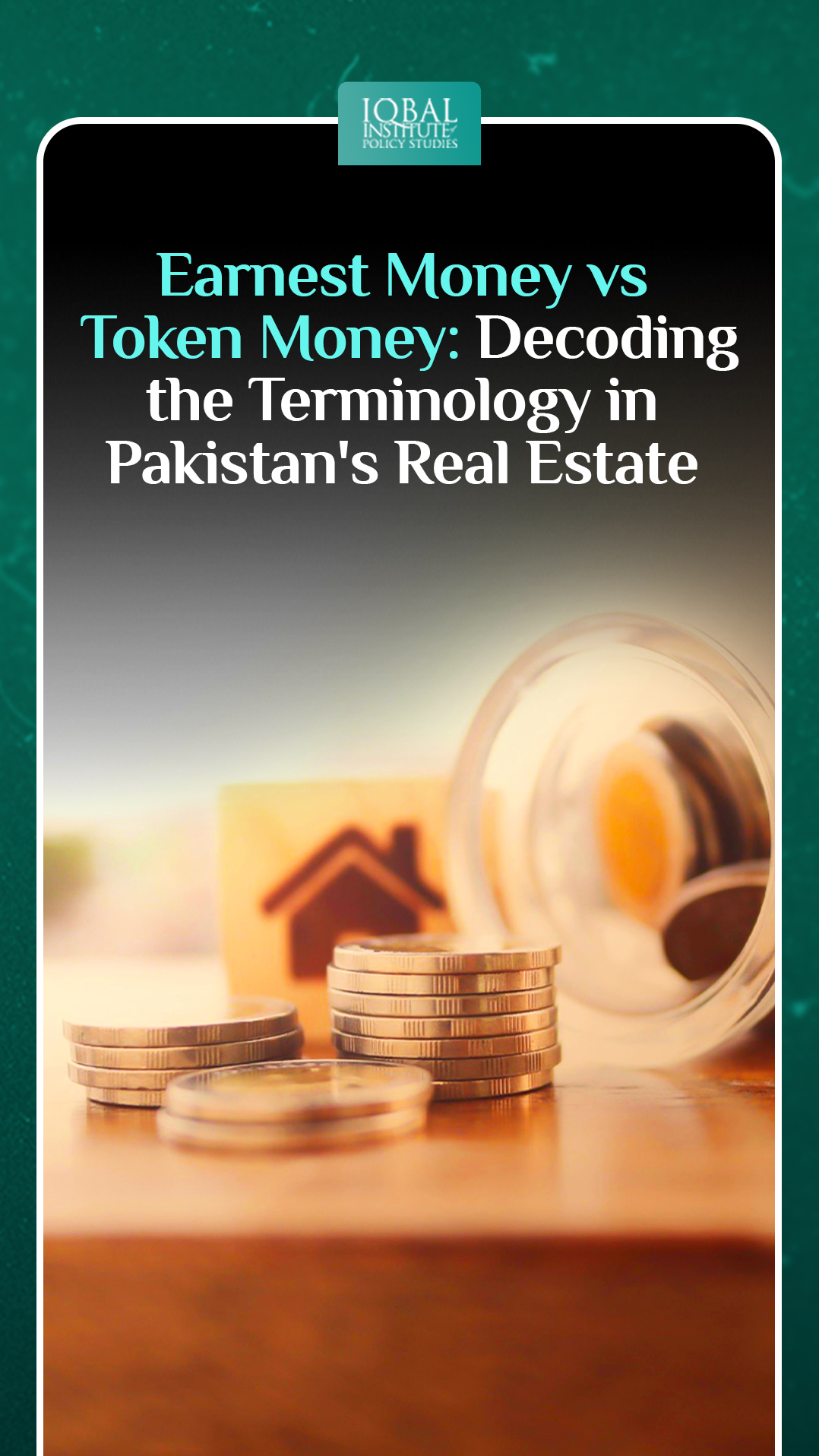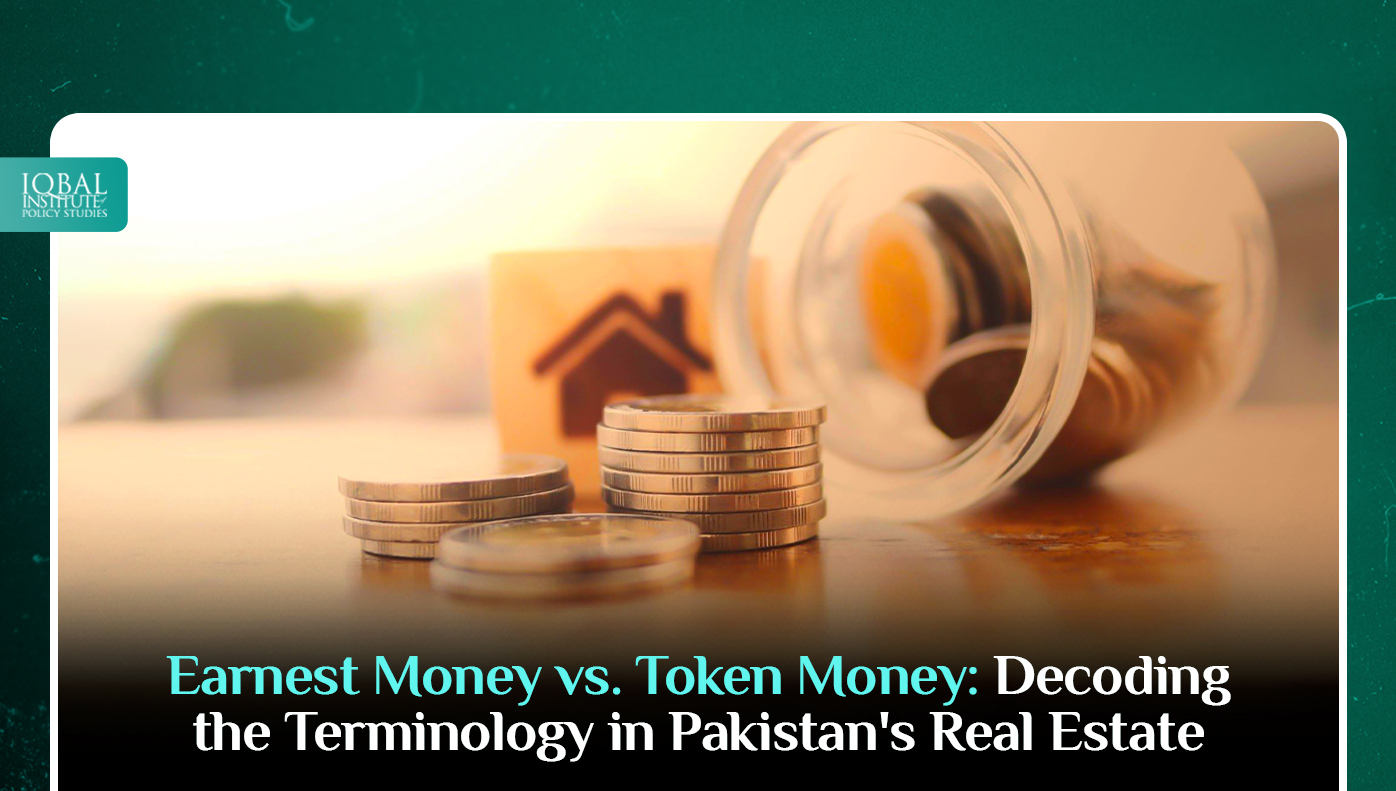In the multifaceted realm of real estate transactions in Pakistan, the terms “earnest money” and “token money” often emerge, creating confusion and sometimes leading to misunderstandings. While both concepts involve a financial commitment from the buyer, they serve different purposes and carry distinct implications. This comprehensive exploration aims to decode these terminologies, shedding light on their significance, differences, and the legal aspects associated with each in the context of Pakistan’s real estate dealings.
Understanding Earnest Money
Earnest money, often referred to as a security deposit, is a monetary sum provided by the buyer to the seller as a tangible demonstration of serious intent to purchase the property. This amount, typically representing a percentage of the property’s total value, serves as a safeguard for the seller against the possibility of the buyer backing out of the deal without valid reasons.
In the intricate landscape of Pakistan’s real estate market, earnest money plays a pivotal role. It signifies the buyer’s commitment and serves as a preliminary indicator of their financial capability to proceed with the purchase. Importantly, if the buyer decides to withdraw from the deal without a valid reason, the earnest money may be forfeited in favor of the seller, compensating them for the time and potential opportunities lost during the negotiation period.
Understanding the nuances of earnest money transactions is crucial for both buyers and sellers in Pakistan. This financial commitment not only secures the seller’s interests but also establishes a level of trust and seriousness in the negotiation process.
Token Money
Token money, in contrast, is a smaller sum provided by the buyer to reserve the property temporarily. It is a tangible gesture of serious interest in the property and an assurance that the buyer is genuinely considering its purchase. While token money is typically a fraction of the total property value, it holds symbolic significance in signaling the initiation of the transaction process.
In Pakistan, token money is often paid at the time of making an initial offer or expressing a desire to move forward with the deal. Unlike earnest money, token money is generally refundable in cases where the transaction does not proceed due to reasons beyond the buyer’s control, such as legal complications or issues with the property’s documentation.
Token money serves as a preliminary agreement between the buyer and seller, allowing the buyer to secure the property temporarily while conducting due diligence and finalizing the details of the transaction. This nominal amount is a way for the buyer to demonstrate commitment without the same level of financial risk as earnest money.
Legal Implications
Understanding the legal ramifications of these financial commitments is paramount for both buyers and sellers in Pakistan’s real estate market. Contracts specifying the terms and conditions surrounding earnest money and token money payments should be meticulously drafted and reviewed to avoid potential disputes.
In the event of a breach of contract, where either party fails to fulfill their obligations, the legal consequences can vary. Sellers may be entitled to retain the earnest money if the buyer defaults without a valid reason, while token money may be refunded under specific circumstances.
It is essential for both parties to seek legal advice and ensure that the terms of the agreement are clearly defined in the contract. This proactive approach can mitigate the risk of misunderstandings and legal complications, fostering a transparent and fair real estate transaction process in Pakistan.
The legal landscape surrounding earnest money and token money in Pakistan involves adherence to contractual obligations and a clear understanding of the circumstances under which these funds may be forfeited or refunded. Legal experts recommend a thorough review of the contract terms and conditions to avoid potential disputes and ensure a smooth transaction process.
Conclusion
In the intricate tapestry of Pakistan’s real estate market, comprehending the distinctions between earnest money and token money is pivotal for all stakeholders involved. These financial commitments not only signify the seriousness of the transaction but also carry legal implications that demand careful consideration.
Buyers and sellers alike should approach real estate transactions with a clear understanding of these terms, seeking legal guidance to navigate the complexities and safeguard their interests. By demystifying the terminology and emphasizing the legal aspects, this comprehensive exploration aims to empower individuals in making informed decisions in Pakistan’s dynamic real estate market. In an environment where clarity and transparency are paramount, an in-depth understanding of earnest money and token money ensures a fair and secure real estate transaction process for all parties involved.
This article is written by Haneen Gul. Haneen is a research analyst at the Iqbal Institute of Policy Studies (IIPS).



Leave a Reply